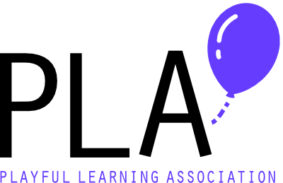Subject Revision Card Games: Talk, Play and Create
Corresponding Author: David Anderson
All authors: David Anderson, Davina Bird
Length: 30 minutes
Location: Gallery Room 1
Description:
This session explores how card-based games can be used as a fun and novel way to help students learn and retain knowledge in any subject. We share our experiences of customising card-based games to create revision tools in business subjects, providing some of the resources and lessons learnt to support you to develop similar tools for your own subjects. There is potential for every subject and module to have its own deck which can be used to complement and enhance student’s understanding of the theories, concepts and vocabulary required. By the end of the session you will have play tested some of the games we used and started to create your own revision pack.
There are a wide variety of card games which could be adapted for educational purposes. An example is Just One, where subject-based cards can be used to play the game, but these cards can also be used in a variety of other ways, such as running a concept sort, flashcards or mind mapping. The project presented during this session focused on extracting game mechanics from popular card-based games and using them with a customised subject-based deck of cards to create revision tools which engage students in playful learning. We’ve focused on card-based games because they are easy to customise, simple to produce and can be adapted over time as a subject evolves. In short, they have great potential for wide-scale adoption.
It is expected that participants will experience the variety of games that can be played with a well-designed deck of cards and come away with an understanding of how they can adapt simple card-based game mechanics for their own subjects. Presenters will seek feedback from participants for how to improve the games and/or for additional game mechanics that might be used.
References, web links and other resources:
University of Lincoln DICE Cafe – Supporting Digital and Interactive Classroom Experiences (https://dicecafe.blogs.lincoln.ac.uk/)
There are examples of the success of card-based Euro-style games in science/medical disciplines (Efthimiou & Tucker, 2021; Granath & Russell, 1999; Luttikhuizen, 2018; Su, Cheng, & Lin, 2014; Vun, Teoh, Ho, & Ahmed, 2013), but limited applications in business (McCarthy, 2022).
Efthimiou, G., & Tucker, N. P. (2021). Microbes Against Humanity, a workshop game for horrible students: using a creative card game in higher education microbiology teaching. Access Microbiol, 3(2), 000186. doi:10.1099/acmi.0.000186
Granath, P. L., & Russell, J. V. (1999). Using games to teach chemistry. 1. The old prof card game. Journal of Chemical Education, 76(4), 485.
McCarthy, S. (2022). Incorporating Business-Focused” Cards against Humanity”-Style Card Games into the Marketing Classroom. Journal of Instructional Pedagogies, 27.
Luttikhuizen, P. C. (2018). Teaching evolution using a card game: negative frequency-dependent selection. Journal of biological education, 52(2), 122-129.
Su, T., Cheng, M.-T., & Lin, S.-H. (2014). Investigating the effectiveness of an educational card game for learning how human immunology is regulated. CBE—Life Sciences Education, 13(3), 504-515.
Vun, L., Teoh, P., Ho, C., & Ahmed, A. (2013). Educational DNA card game for the understanding of DNA and biotechnology. Int J Educ Res, 1, 1-6.
